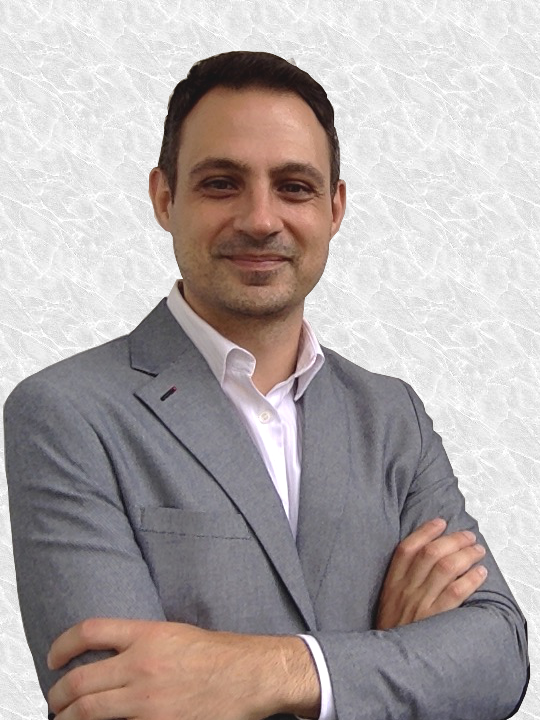Advice from an expert: ‘Seven myths hindering your science career’


Our conpher expert contributor is Dr Hernan Biava, a prize-winning professor of chemistry at Brevard College, and a successful Life Coach.
Seven myths hindering your science career
Every profession has its own culture and implicit codes, and academic careers are no exception. These myths are EVERYWHERE, and they influence how we communicate, dress, and even perceive ourselves and others. Also, these myths and biases are not something we will find in textbooks, and our teachers and mentors will very rarely talk or even know about them. It is difficult to clearly discern how these myths come to exist and establish themselves among the scientific community, even when nowadays they are no longer valid. But the existence of these myths is not the real problem. The REAL PROBLEM with these career myths is that we are usually unaware of how much they influence our professional choices.
During my time as a researcher and thanks to the help of a career coach, I was able to identify some of the beliefs overshadowing my career choices. I went on to design an action plan that allowed me to see beyond those biases and move forward professionally to where I wanted to be. The results I got were great. Not only was I capable of boosting my scientific career by publishing several new articles, but I was also able to gather the necessary confidence and skills to pave the way to a new career more in line with my personal values. I am finally delighted with my job, combining science education and career coaching for scientists.
Identifying the myths blocking your science career will not only set you free; it will help design a professional strategy, achieve better results, and stop feeling frustrated with your profession.
In this post, I want to share with you the seven myths that, from my personal experience, are most commonly found among those who work in science.
MYTH 1. A Ph.D. WILL AUTOMATICALLY GIVE YOU ACCESS TO HIGH PAYING JOBS, AND HIGHER RANKED POSITIONS.
This is the first myth that every academic must stop believing. Forty years ago, people with a university degree, and more so those with a doctorate, surely could choose between several good job offers, all with high salaries and recognition. But today the job market – inside and outside of academia – is very different. Even if you have a Ph.D., you will still need to work hard to achieve that dream job. No one will give you a great job just because you have a Ph.D. You will have to prove you are the right person for that role, and that requires skills beyond technical expertise in your area.
MTYH 2. DOING RESEARCH IN PRIVATE COMPANIES IS ONLY FOR FAILED SCIENTISTS TRYING TO MAKE MONEY.
Many scientists believe that good science can only be done in academic institutions, and research in private companies is only for greedy scientists with low standards. But this is far from the truth.
While it is factual that a company needs to make money to remain profitable, that does not mean that scientific quality is sacrificed. Many researchers working in the private sphere carry out excellent science under very high standards. What does tend to vary is the systems by which scientific work is evaluated and disclosed. In the private sector, it’s more about patents and less about papers. In many aspects, patents are subjected to more rigorous scrutiny than the famous peer- review system, so the quality of research produced by a company must be of the highest standard.
MYTH 3. IF YOU ARE LUCKY ENOUGH TO BE WORKING IN ACADEMIA, THEN YOU SHOULD NOT COMPLAIN.
Some scientists are convinced that science is a calling and a privilege for a few “chosen” ones. So, working as a scientist means that you must scarify all other aspects of your life. Unfortunately, many academic mentors keep this myth alive and pass it on to their mentees. Although all jobs indeed demand efforts and sacrifices to be able to advance and achieve recognition, being a scientist does not imply that you must accept working under unfair conditions, risk your physical or mental health or leave aside other aspects of your personal or social life. Finding the right balance could be tricky but in no way impossible. After all, an academic job is just that: a job —nothing more, nothing less. Your job should serve as a tool to reach your dreams and achieve your full potential, not as a prison that prevents you from living a rewarding life.
MYTH 4. IF YOU DECIDE TO LEAVE ACADEMIA, IT’S BECAUSE YOU ARE A FAILURE.
I wouldn’t be lying to you if I tell you that guilt could be the greatest enemy for your career (or life in general). If you are unhappy with your academic job, do not let the opinions of your mentors, your colleagues, or even your friends keep from opening yourself to other careers outside of academia. If you decide to explore different professional horizons, that doesn’t mean that you are a failure, but quite the opposite. It takes a lot of courage to recognize that you are not satisfied with your career choices and real confidence in your skills to launch yourself into a new career path. Taking risks and being confident are the main characteristics of a successful professional. So, if you think that only failed scientists leave academia, think again.
MYTH 5. KEEPING UP WITH YOUR SOCIAL LIFE IS A WASTE OF YOUR TIME.
Many scientists, especially during their early-career stage, think that you should be spending as much time as possible doing experimental work, collecting data, writing papers and grants, and that any activity that distracts from that is a waste of time. So, therefore, they tend to relate only to like-minded people. The result? A narrower vision of their professional choices. Dedicating time to social and leisure activities is essential to keep a healthy and more productive brain, and it’s also a great way to build new connections and networking with people outside your field. Career research shows that in today’s job market, most opportunities for professional growth come from networking with colleagues and experts from other areas. So, disregarding your social life means limiting your career choices.
MYTH 6. BEING A RESEARCHER IS THE ONLY VALID JOB FOR TRUE SCIENTISTS.
In order to survive as a discipline, science requires much more than scientists doing research and publishing papers. Various other stakeholders are also needed: politicians, journalists, educators, patent lawyers, consulting advisors, technology transfer agents, human resources officers, etc. The list of possible jobs for trained scientists is endless. If you don’t know anybody working in any of those fields, then you are surely a victim of myth 5.
MYTH 7. IF YOU ARE A SCIENTIST, THEN YOU ARE SMARTER THAN THE AVERAGE PERSON AND SHOULD BE ABLE TO SOLVE ALL YOUR PROBLEMS ALONE.
The academic brain is trained for thinking and answering difficult questions, but when it comes to making life choices, it is normal to feel overwhelmed and lost. Recognizing that you need help is not a sign of incompetence, but a characteristic of an assertive mind. But be aware that whoever you turn to for support must be someone that can understand your situation and have an unbiased perspective. Your Ph.D. advisor might not be the right person to ask for advice when you are tired of working 12 hours per day in his lab and now are considering opening a food truck. That is why I recommend hiring a career coach. Even better, look for a career coach that focuses on scientists. We’ve been there, done that, and can understand what you are going through. Finding the right career coach can genuinely transform your life, as it did for me.
Do you relate to one or more of these science career myths? Could you identify some other beliefs? I’d love to hear from you! You can find me on Twitter or LinkedIn.
I believe that learning to recognize your unconscious biases is the first step in transforming your science career and achieving job satisfaction. Give it a try!
Hernan Biava
Researcher, educator, and career coach for scientists

